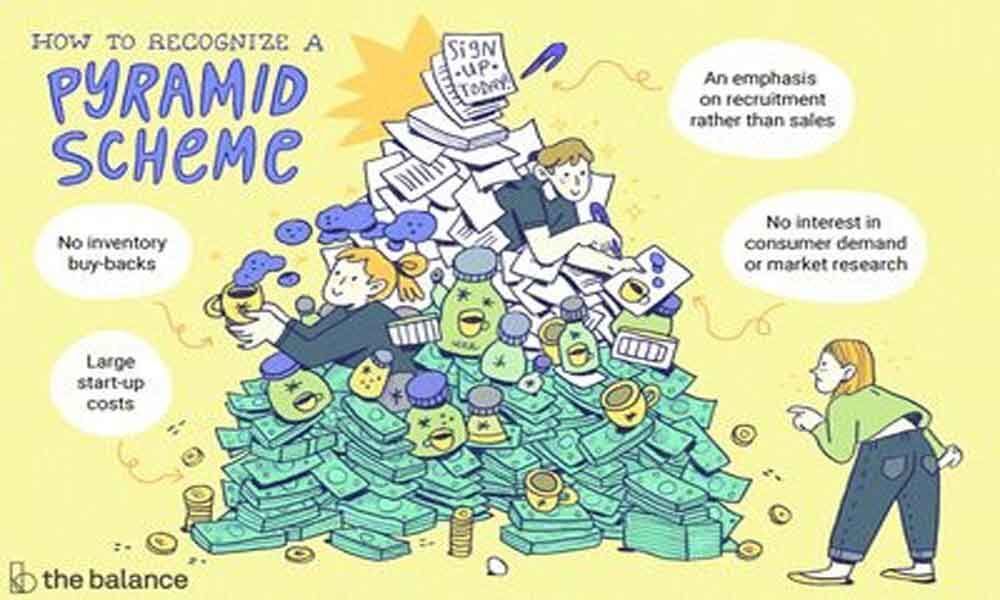On mission to expose get rich quick schemes

Get rich schemes – call them what you may – have siphoned off some Rs 7 lakh crore but no one seems to bat an eyelid, laments Aruna Ravikumar, a three-decade veteran of the print and electronic media, in her new book, tracing their origins to the liberalisation of the economy in 1991.
Hyderabad : Get rich schemes call them what you may have siphoned off some Rs 7 lakh crore but no one seems to bat an eyelid, laments Aruna Ravikumar, a three-decade veteran of the print and electronic media, in her new book, tracing their origins to the liberalisation of the economy in 1991.
"The losses in Ponzi and pyramid (Multi-Level Marketing-MLM) in the country are being pegged at INR 7 lakh crore and no one's batting an eyelid. These figures don't seem to matter anymore in a country that has gotten used to scams involving huge amounts of money in the banking system," city-based Ravikumar writes in "Marauders of Hope" (The Write Place/Crossword/pp 166/Rs 299).
"So sick and tired have citizens become of these mind numbing figures that the shock element is long gone. We have even started comparing scam figures finding one less dangerous than the other in the manner of comparing school grades."
Just how true this is can be gauged from three high-profile cases currently in the public eye – Saradha (Rs 1,200-Rs 4,000 crore), Rose Valley (Rs 17,000 crore) and IMA (Rs 2,500 crore) – none of which is anywhere near closure. In the case of the first, West Bengal Chief Minister Mamata Banerjee went to the extent of staging a sit-in protest against the questioning of former Kolkata Police Commissioner Rajeev Kumar for his alleged involvement in the goings-on.
Autonomous regulatory institutions "have to exercise their authority without fear to serve the purpose for which they were established. We have examples of officers following the rule book and remaining true to their conscience, despite may pressures. They ought to be role models for those in various positions of authority if the system providing a shield to the corrupt has to be cleansed," Ravikumar maintains.
How did the book come about?
"As a journalist with the print and electronic media for almost three decades, I have covered several political and social issues. One of the topics in a television debate programme that I anchored for a regional television channel was on fraudulent multilevel marketing firms since many firms came under the scanner of the police at that point of time," Ravikumar told IANS.
"Shocking details about the modus operandi, the huge amount of money being made by people outside the country, evasion of taxes, money laundering, the web of deception and trail of broken relationships in a marketing model that encourages tapping social contacts for recruitment led me to study the subject in depth.
I also realised that people were talking about bank frauds and other financial institutions but there was no conversation around fraud that impacts everyone in society and is more than Rs 7 lakh crore in the two decades since these companies entered India post liberalisation. There was a story here that had to be told and I told it," she added.
Speaking about her research for the book, the author said this proved to an eye-opener and made her acutely aware of the survival instincts of the "Marauders of Hope." "I spoke to victims, company representatives, whistle-blowers, the judiciary and police officers who acted without fear or favour in the best interests of the people. I went through court judgements, newspaper articles, video clippings and all available material on fraudulent financial schemes in the one-and-a-half-years that led to the book," she added.











